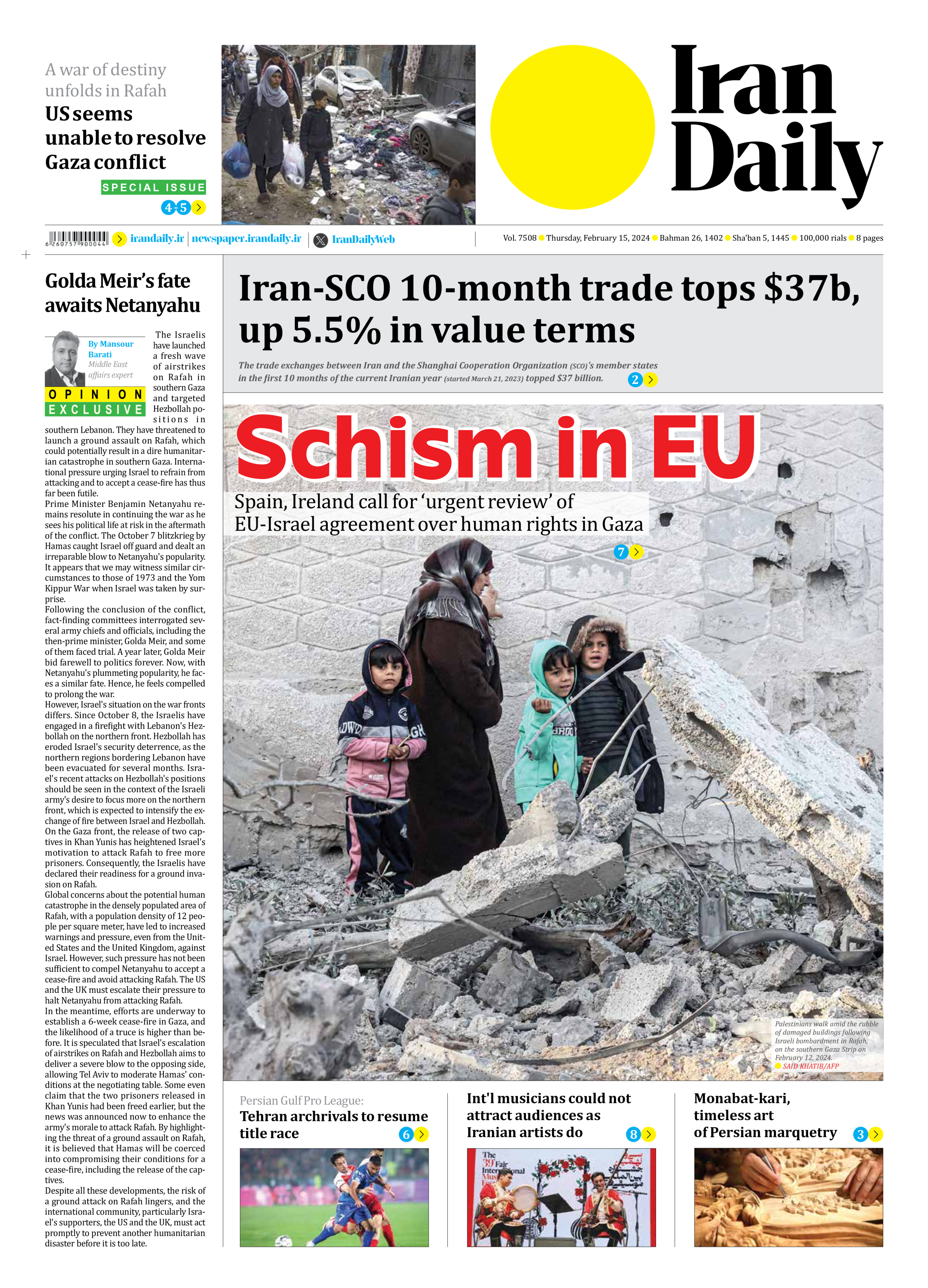
Golda Meir’s fate awaits Netanyahu
By Mansour Barati
Middle East affairs expert
The Israelis have launched a fresh wave of airstrikes on Rafah in southern Gaza and targeted Hezbollah positions in southern Lebanon. They have threatened to launch a ground assault on Rafah, which could potentially result in a dire humanitarian catastrophe in southern Gaza. International pressure urging Israel to refrain from attacking and to accept a cease-fire has thus far been futile.
Prime Minister Benjamin Netanyahu remains resolute in continuing the war as he sees his political life at risk in the aftermath of the conflict. The October 7 blitzkrieg by Hamas caught Israel off guard and dealt an irreparable blow to Netanyahu's popularity. It appears that we may witness similar circumstances to those of 1973 and the Yom Kippur War when Israel was taken by surprise.
Following the conclusion of the conflict, fact-finding committees interrogated several army chiefs and officials, including the then-prime minister, Golda Meir, and some of them faced trial. A year later, Golda Meir bid farewell to politics forever. Now, with Netanyahu's plummeting popularity, he faces a similar fate. Hence, he feels compelled to prolong the war.
However, Israel's situation on the war fronts differs. Since October 8, the Israelis have engaged in a firefight with Lebanon's Hezbollah on the northern front. Hezbollah has eroded Israel's security deterrence, as the northern regions bordering Lebanon have been evacuated for several months. Israel's recent attacks on Hezbollah's positions should be seen in the context of the Israeli army's desire to focus more on the northern front, which is expected to intensify the exchange of fire between Israel and Hezbollah.
On the Gaza front, the release of two captives in Khan Yunis has heightened Israel's motivation to attack Rafah to free more prisoners. Consequently, the Israelis have declared their readiness for a ground invasion on Rafah.
Global concerns about the potential human catastrophe in the densely populated area of Rafah, with a population density of 12 people per square meter, have led to increased warnings and pressure, even from the United States and the United Kingdom, against Israel. However, such pressure has not been sufficient to compel Netanyahu to accept a cease-fire and avoid attacking Rafah. The US and the UK must escalate their pressure to halt Netanyahu from attacking Rafah.
In the meantime, efforts are underway to establish a 6-week cease-fire in Gaza, and the likelihood of a truce is higher than before. It is speculated that Israel's escalation of airstrikes on Rafah and Hezbollah aims to deliver a severe blow to the opposing side, allowing Tel Aviv to moderate Hamas' conditions at the negotiating table. Some even claim that the two prisoners released in Khan Yunis had been freed earlier, but the news was announced now to enhance the army's morale to attack Rafah. By highlighting the threat of a ground assault on Rafah, it is believed that Hamas will be coerced into compromising their conditions for a cease-fire, including the release of the captives.
Despite all these developments, the risk of a ground attack on Rafah lingers, and the international community, particularly Israel's supporters, the US and the UK, must act promptly to prevent another humanitarian disaster before it is too late.







